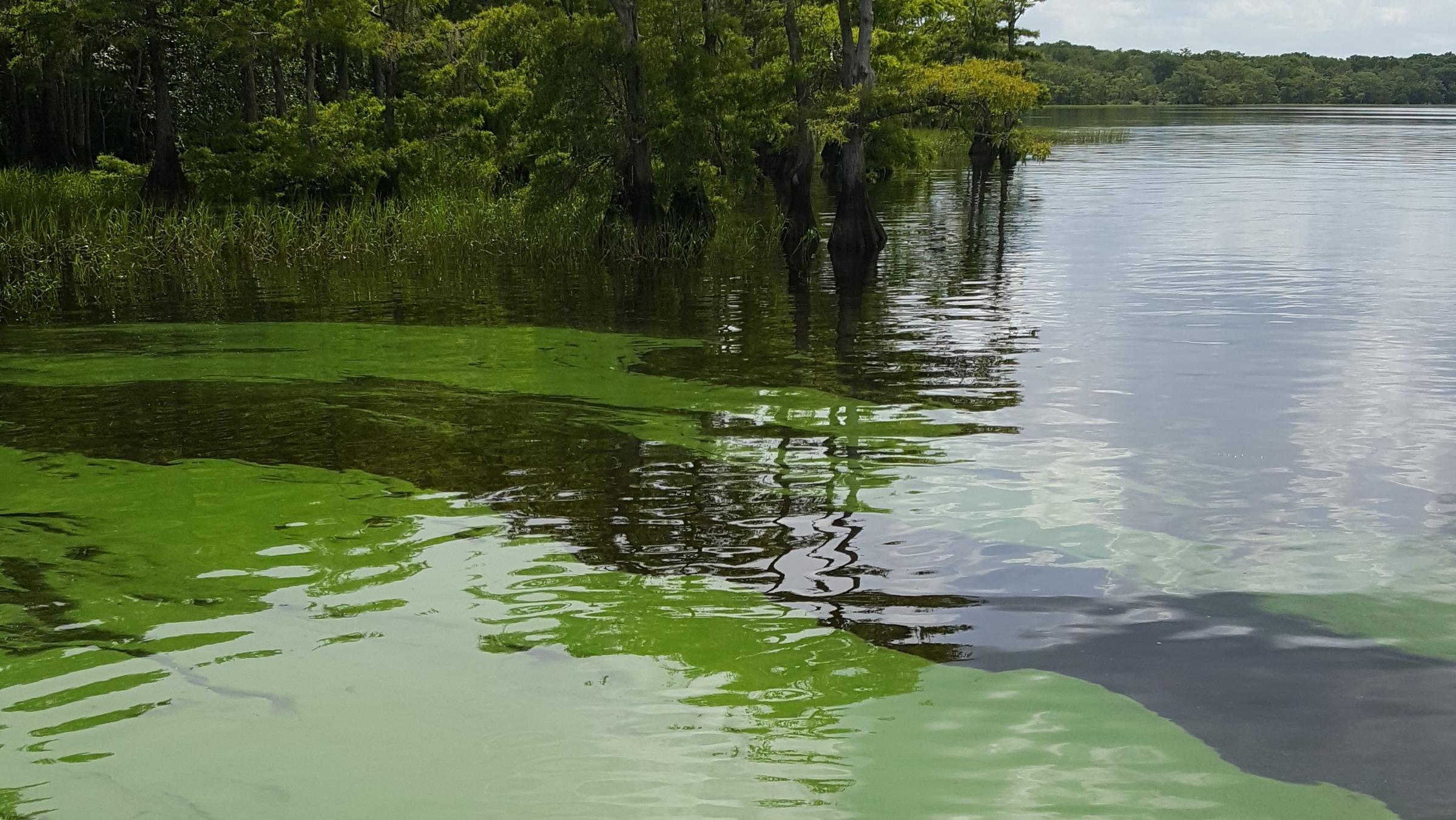A health alert has been issued in Clay County after tests showed the presence of harmful blue-green algal toxins in Doctors Lake.
The alert, issued by the Florida Department of Health in Clay County, is in response to a water sample taken on May 24, meaning the public should exercise caution in and around that waterway.
Blue-green algae is a type of cyanobacteria that is common in Florida’s freshwater environments, a bloom occurring when its rapid growth leads to an accumulation of individual cells that discolor water and often produce floating mats that smell unpleasant, health officials said. Sunny days combined with warm water in still waterways can lead to blooms, which are more frequent in summer and fall.
Many types of blue-green algae can produce toxins, which can affect human health and kill fish and other aquatic animals, health officials said. This algae is blue, bright green, brown or red and can have a strong odor like rotting plants. Exposure to blue-green algae can cause rashes, stomach cramps, nausea, diarrhea and vomiting, as well as respiratory irritation. Sometimes, high exposures of toxin can affect the liver and nervous system, health officials said.
Health officials have some warnings for people:
- Do not drink, swim, wade, use personal watercraft, water ski or boat in waters with a visible bloom.
- Wash skin and clothing with soap and water if there has been contact with algae or discolored or smelly water.
- Keep pets away from the waters where there are algae blooms, since they can become sick from it.
- Do not cook or clean dishes with water contaminated by algae blooms. Boiling the water will not eliminate the toxins.
- Do not eat shellfish in waters with algae blooms. But fillets from healthy fish caught in freshwater lakes experiencing blooms is safe, but they should be rinsed with tap or bottled water and cooked fully.
For additional information about potential health effects of algal blooms, go to floridahealth.gov/environmental-health/aquatic-toxins. For current information about Florida’s water quality status and public health notifications for harmful algal blooms and beach conditions, go to protectingfloridatogether.gov.
Residents can report an algal bloom to the Florida Department of Environmental Protection on its toll-free hotline at (855) 305-3903 or online.
9(MDEwNzczMDA2MDEzNTg3ODA1MTAzZjYxNg004))







